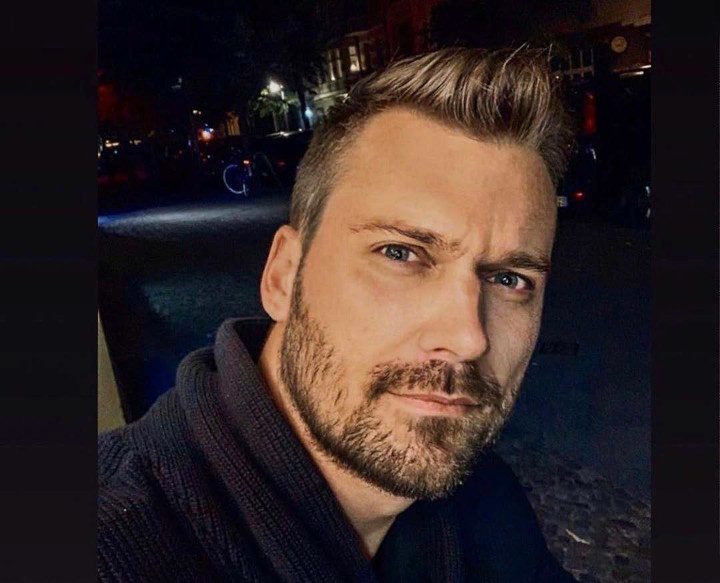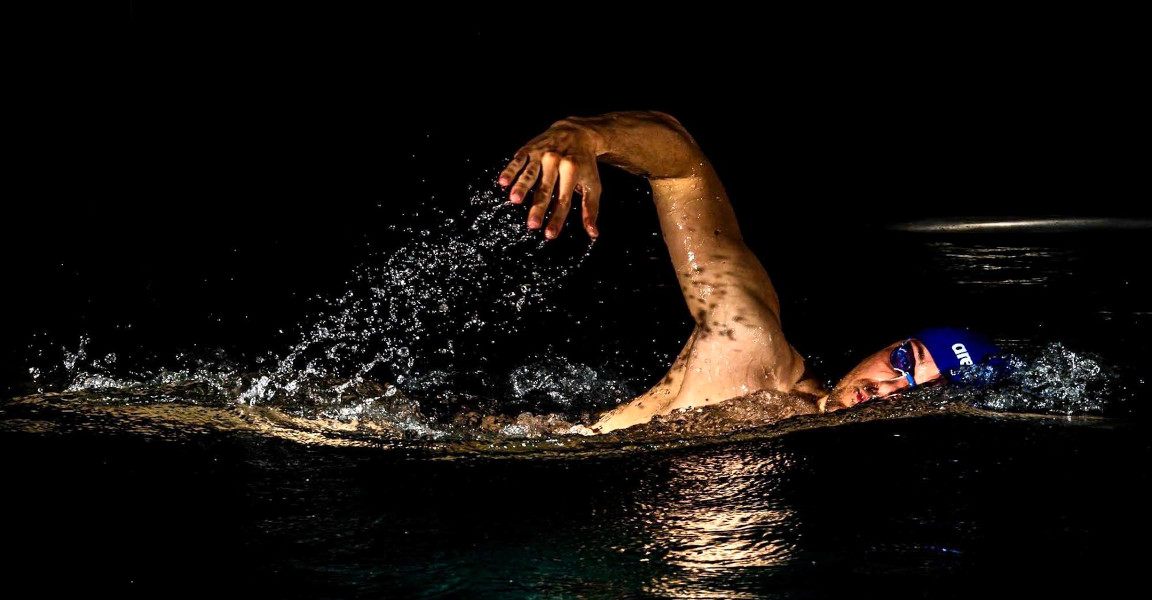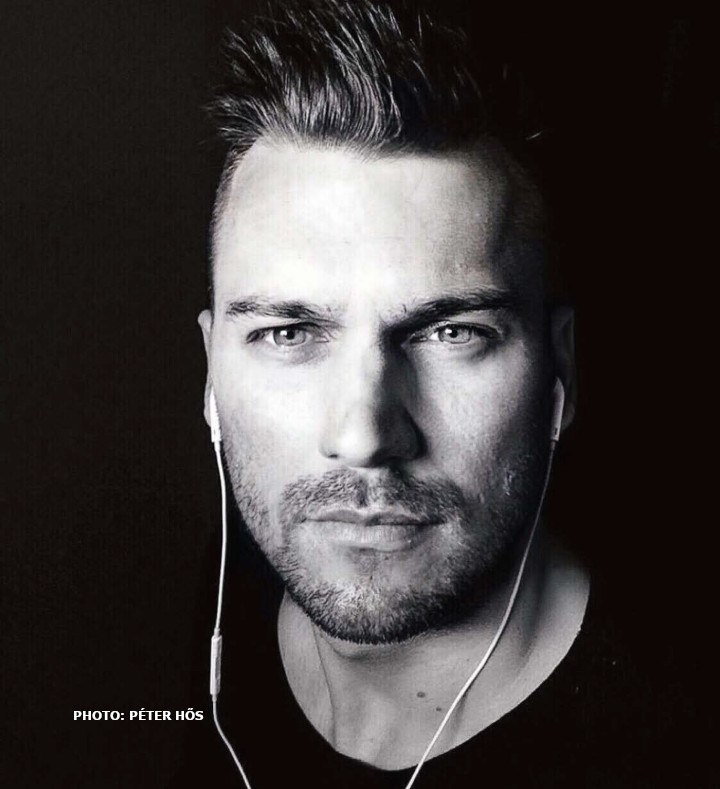WORDS: MIA MEDAKOVIC
INTERVIEW: PÉTER HŐS
PHOTOS: FROM THE PRIVATE ARCHIVE
PÉTER HŐS IS A HUNGARIAN BORN PROFESSIONALLY EDUCATED AND TRAINED INTERNATIONAL CHAMPION SWIMMER TURNED COACH. HE WAS NATIONAL CHAMPION OF HUNGARY SEVERAL TIMES, AND TWICE THE SOUTH-AFRICAN CHAMPION IN THE 200 METER BUTTERFLY WITH A FASTEST TIME OF 2:00,97, AND WAS PART OF THE HUNGARIAN NATIONAL TEAM FROM 2006 – 2010. HIS FIRST TEACHING TOOK PLACE IN 2003 IN KLERKSDORP, SOUTH AFRICA, WHERE HE TAUGHT SWIMMING TO DISABLED AND SPECIAL NEEDS KIDS. AFTERWARDS HE COACHED IN BUDAPEST, AUSTRIA, HÓDMEZŐVÁSÁRHELY, BERLIN, HELSINKI, SAARBRÜCKEN, AND SINCE 2023, IS THE HEAD COACH OF HIGH PERFORMANCE AT THE BRITISH INTERNATIONAL SCHOOL IN PHUKET, THAILAND. HE HAS COACHED MANY SWIMMERS WORLDWIDE TO CHAMPIONSHIPS IN MAJOR SWIMMING COMPETITIONS.

When did you have your first contact with water and when did you decide to become a swimmer?
It’s a pretty funny story. I was around 4 or 5 years old when my parents took me on a summer holiday. We were heading out for a long walk on the beach and I was walking ahead. In the next second my parents couldn’t see me anymore. Somehow, I fell into a small channel. That was the point where they said: okay, he has to learn how to swim.
What is the difference between swimming and coaching?
Those are two completely different worlds. The schedule is the same but as a swimmer you switch into machine mode or if you are a long distance swimmer you switch your brain off to complete the distance. As a coach, or since I’m a coach, the way I do it is to turn every sense of that you have.
You have to feel the squad, every individual in your squad. You have to set the strategy of planning the races throughout the season and pick the perfect distance for each individual. Nowadays being a coach means being an all rounder when it comes to what you need to teach your squad or help your athletes with. In the 80-90’s the coaches sometimes even smoked next to the pool, but now you have to be a nutritionist, a mental coach and sometimes even a friend who listens and cares. Back in the days I didn’t have all those skills; so since I’m a coach now I’m trying to cover all these aspects to bring the best out of every swimmer in my team. One more important thing is that you actually become a coach over time. It’s not like on Monday you are swimmer and the next day you are a coach. It takes time to switch to how you think, plan and approach athletes, instead of being one.

What are some of the most important skills a swimming coach should have?
I would say the ability to see an athlete’s possible swimming future and to have high emotional intelligence to sense the athletes. If you have that, I think you are able to develop the best strategy for the swimmers and not force the swimmers to a strategy.
What was your best result as a coach?
I don’t see results in medals. I’m taking a look at how talented a swimmer is, how much effort we had to put in together to reach a certain goal and I think other important factors are the circumstances. So, following those guidelines, I had a 36 year old athlete who had been told to quit swimming and who caught Covid. He was out of training for weeks in the beginning of the qualifying period, but now performs at his best again and qualifies for the 25km European and World Open Water Championships.
Which ages are your target for coaching?
As a coach I started from the “bottom”. So I have been working with all kind of age groups during my career. I think every coach has to see which area he’s best suited for or which age group he can best work with. The other aspect is the fire, so I don’t look for specific ages actually. I seek the fire in each squad and individual athlete I’m coaching.

Considering your enviable international coaching experience, which nations you feel have the best performers in swimming?
I would say there are many nations where we can find great athletes, but in the former Soviet territories I still see more hunger for results and swimmers that are willing to put in the hard work every day than in countries where the economy grows like a fast locomotive.
What is your training philosophy?
Never chase your dreams – you won’t catch them. Visualize your goals and reach them step by step. If you know what you want, set a plan on how you can reach it and go for it, embracing every step on the way.
Tell us the secret of your success?
Knowing which door you have to walk through and when to open it.
Which characteristics are important when selecting young swimmers during the scouting process?
I’m usually looking for simple things like their joy and how their body flows through the water when they’re swimming. Next to a good technique relevant to the age, there are also characteristics like physical and mental resilience and how they manage their own emotions as well as their time management for school, training and free time with friends and family, making it all work with their schedule so they can keep the fun and joy of swimming.
Currently I’m head of the high-performance swim team at British International School Phuket (BISP). I think it’s a perfect opportunity to study and swim abroad, showing exactly those skills as mentioned above to get a scholarship and “rise above”, showing full potential through those scouting phases.

What is your goal as a coach?
My goal as a coach is to always try to unlock each individual’s potential, like breaking down their walls, to show them how far they can go. There is nothing better than seeing your athletes succeed. It’s a mixture of emotions, all the hard work they have invested and the final success showing in their eyes. It’s great to medals and a great record, but in my opinion, the best goal to reach is the growth, happiness and gratefulness of my swimmers.
The topic of the February issue of RYL magazine is “In the Name of Love”. What have you done for love?
I think love in a deeper meaning is how we interact with others. Especially nowadays, I think you can sense the stress in the air. Everyone is living fast, living in the future. And I believe if we are kind to each other, even if it’s just exchanging a small smile or when we’re pausing for a moment and actually feel the present, especially together with someone we love and care for, appreciating what we have and where we live, we can also feel God’s presence and love.
I would like to thank you for the interview. It was refreshing to answer your questions and to get to know you better as an uplifting, energetic person.




